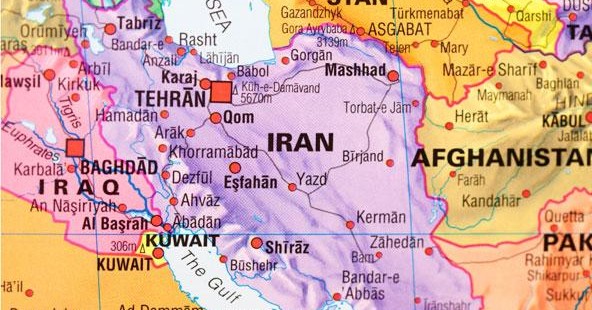
Iran Sanctions: Another Cuban Missile Crisis?
And two more hotspots: Iraq and Egypt
Is 2012 destined to be a year of Middle East challenges—not to say calamities—for the Obama administration? It has certainly started out ominously. The White House already has three fires to put out simultaneously—one in Iran, one in Iraq, and another in Egypt.
None of these crises is related to any other. But together they could leave America’s Middle East military strategy in shreds, buckle the U.S. economy, and, in the worst of outcomes, make $5-a-gallon gasoline a dreadful reality for all of us.
The latest and most dangerous of these hotspots is the Persian Gulf. A few days before New Year’s, Iran announced that it would blockade the Strait of Hormuz if President Obama (and the European Union) goes ahead with sanctions against Iranian oil exports. Washington and its European allies are responding to a recent report from theInternational Atomic Energy Agency that asserted the Iranians may be preparing to build a nuclear warhead.
This has a faint whiff of the Cuban missile crisis about it. Iran is the world’s No. 3 oil exporter, and a fifth of the world’s crude is shipped through the Strait. The U.S. already has a carrier fleet in the Persian Gulf, and Iran boasts the best-armed navy in the region. “If they impose sanctions on Iran’s oil exports,” Mohammad-Reza Rahimi, Iran’s first vice-president, said in announcing the blockade, “then even one drop of oil cannot flow from the Strait of Hormuz.”
Iran’s blockade threat makes it plain enough that sanctioning oil sales, which the Western powers have previously avoided, would be a significant blow to the Iranian economy. But would sanctions be effective in halting Iran’s nuclear program? More than this, what would they cost oil-consuming nations at a moment of economic weakness? The financial markets have already started factoring in higher petroleum prices in 2012.
The drift of opinion is that we have another example of Iran’s recklessness on our hands. But was Congress any less reckless when it put extensive new sanctions on Obama’s desk? Remember, the IAEA report still puts the case in the conditional: Iran may be doing this, that, or the other. The fact is we do not know Iran’s nuclear intentions. Over the weekend, Tehran invited the U.S., Britain, France, Germany, and Russia—the U.N. Security Council in sum—into a new round of talks. Even though past negotiations have been fruitless, the wise way to advance beyond this disturbing impasse is to take Iran up on its offer and see where the conversation goes.
Iraq
Iraq should be called the instant mess. The last American soldiers weren’t loaded onto C-130s before Prime Minister Nuri Kamal al-Maliki was showing signs of turning government institutions into Shiite strongholds and the army into a collection of Shiite militias.
Two points here: First, al-Maliki has so far contravened a 2010 agreement with the U.S. that he would not turn Iraq back into a nation rent by Shiite-Sunni rivalry. Second, The U.S. is continuing to sell $11 billion worth of weaponry to Iraq to help it secure its borders.
This includes some heavyweight gear, including F-16s and main battle tanks. But much of what Washington is giving al-Maliki’s government could be used domestically. That is dangerous. In the worst of outcomes, al-Maliki would build a Shiite state that makes common cause with Iran. Plainly, the wise course is to cut Baghdad off until it delivers on its political promises.
Egypt
Finally there is Egypt, another political cauldron that implicates the U.S. by way of the $1.3 billion Washington sends the Egyptian army every year. Egypt is midway through national parliamentary elections, and it seems a near certainty that Islamic parties such as the Muslim Brotherhood will emerge with a large majority of the vote. The problem is that the army shows no sign of giving up power. Most recently, the military has taken to harassing the offices of U.S., European, and local democracy-building agencies.
Washington and several European capitals were quick to cry “Foul!” in this case, and at a very high level, and the Egyptian military appears to be backing off. But this is not the end of the Egyptian problem: It’s the beginning of it. Later in 2012, a new parliament will sit in Cairo and presidential campaigns will commence. Washington should watch carefully because that $1.3 billion makes Egypt America’s No. 1 aid recipient. Post-Mubarak, we cannot continue backing a repressive military, even if it means one form or another of Islamic democracy takes root.

